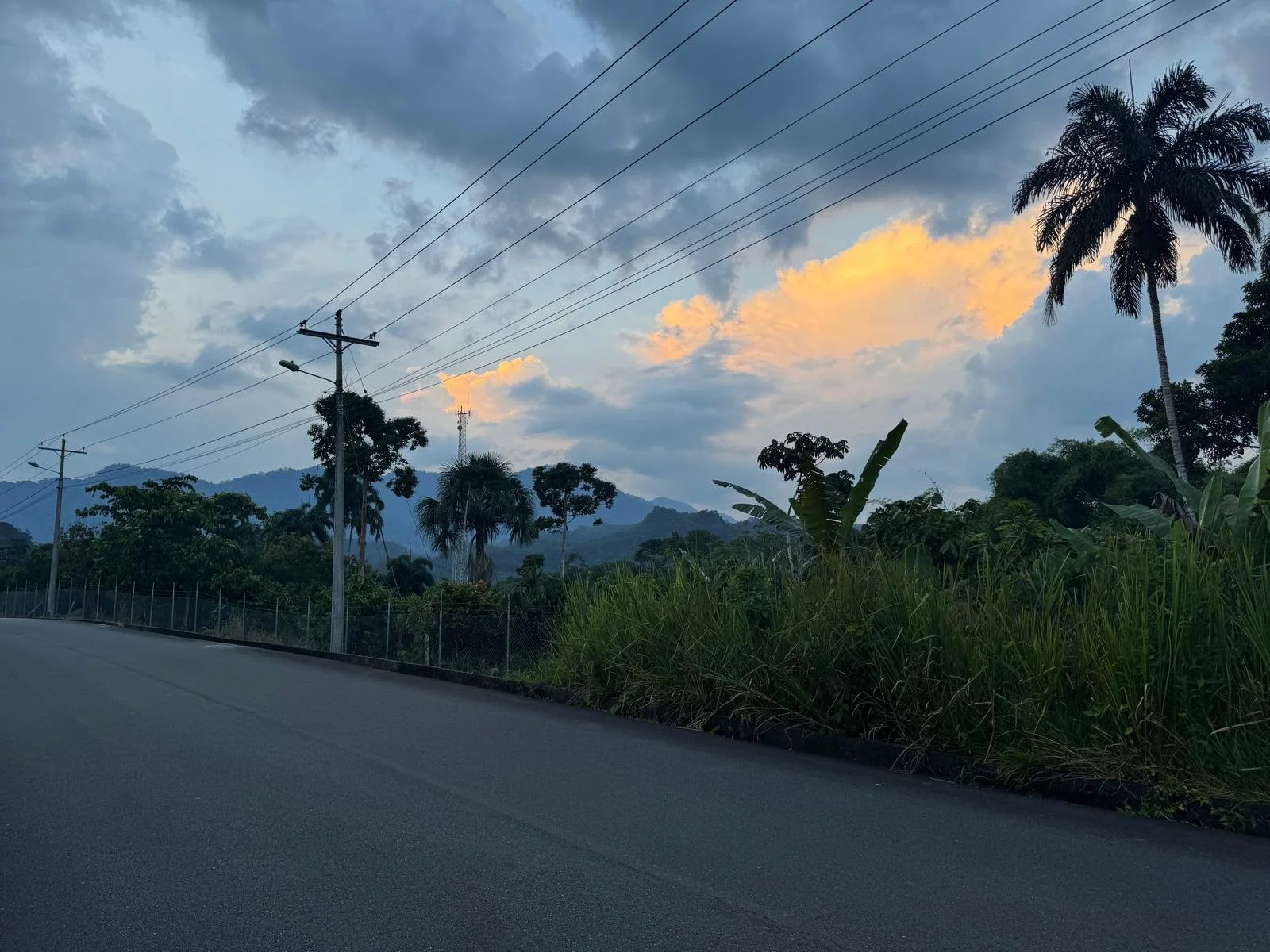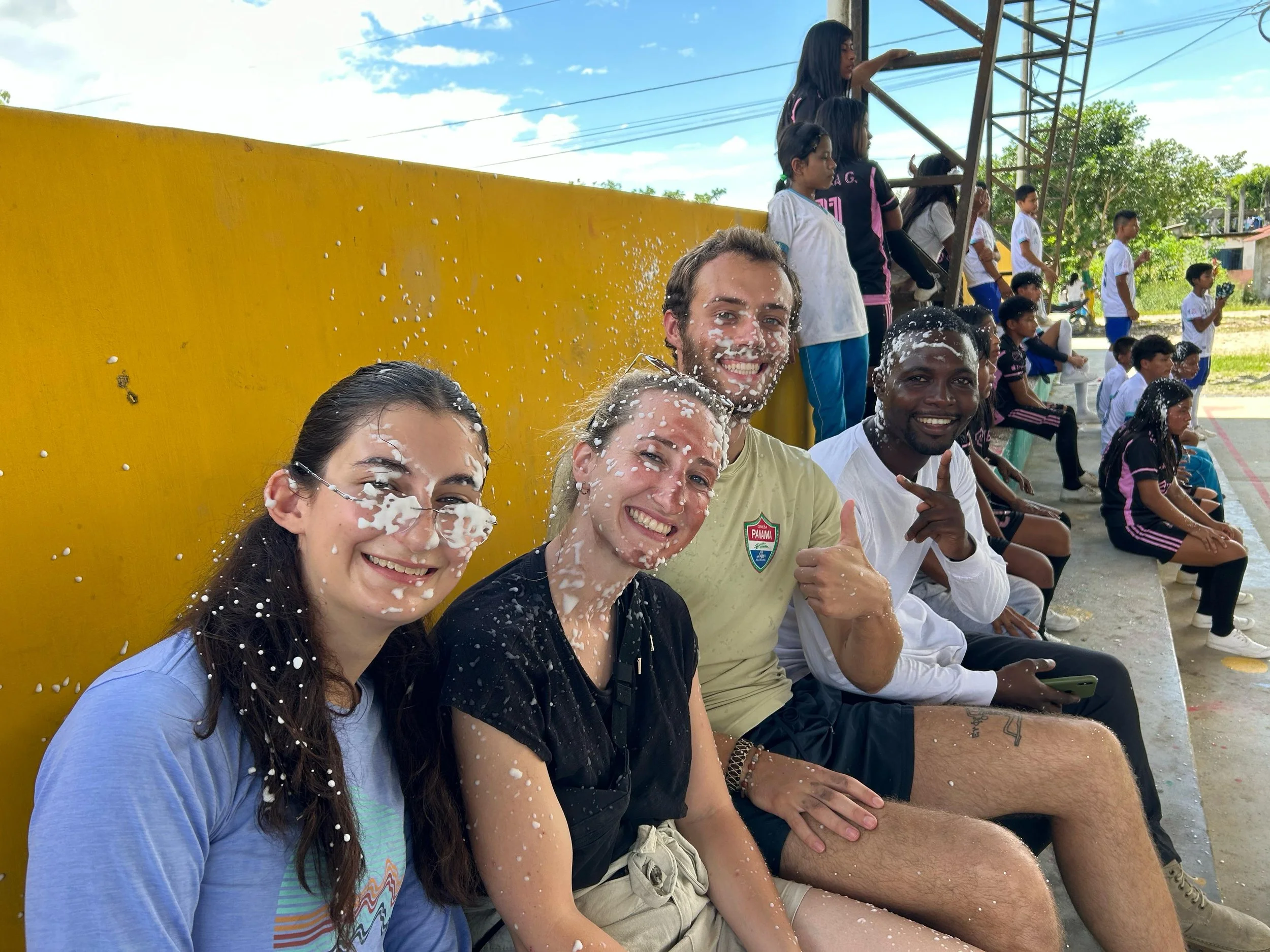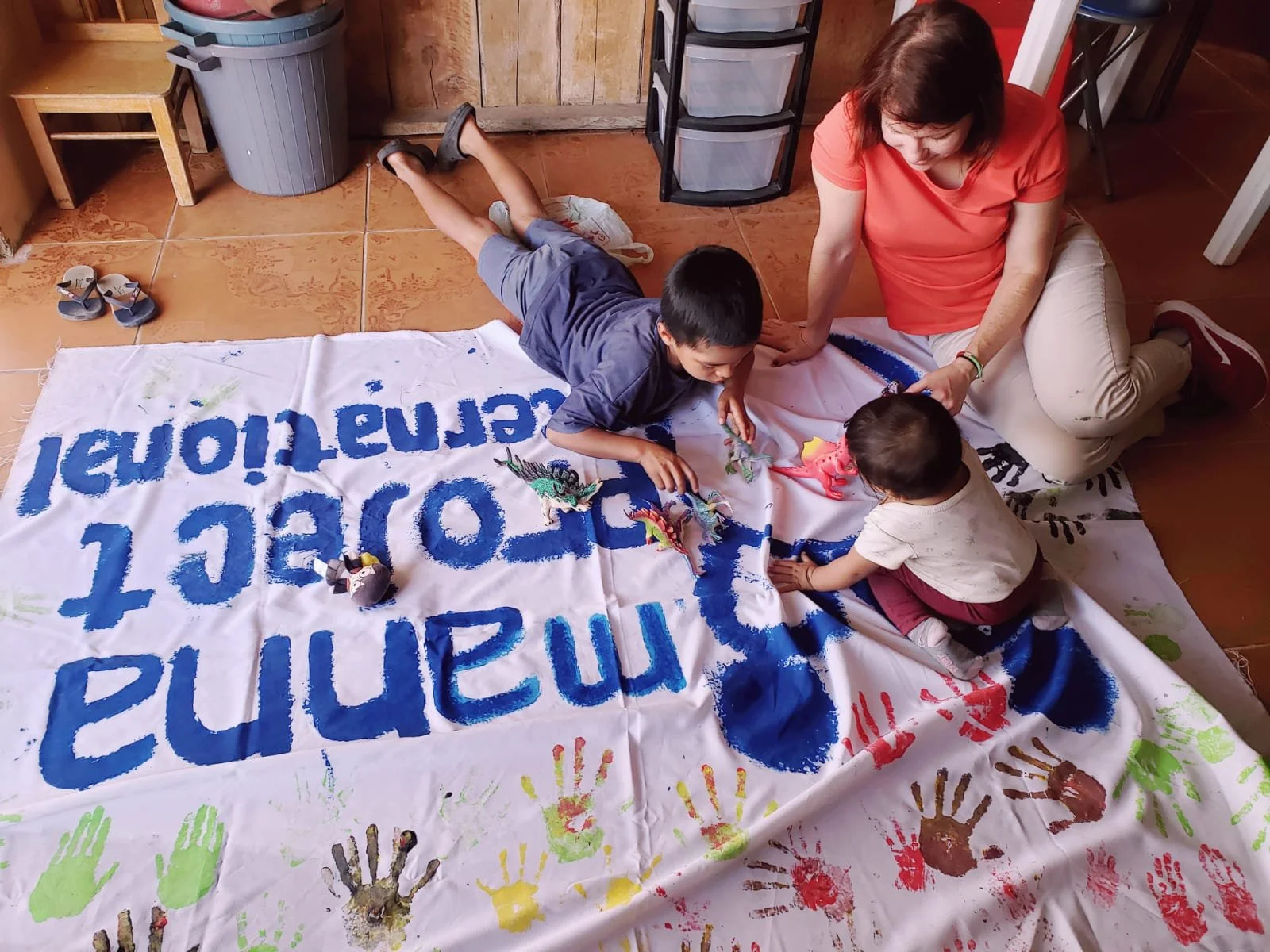The week before our long weekend, some of our adult English students (Ivonne, who is in the intermediate class, and her aunt Fabiola, who is in my basic class) arranged to teach us all how to make colada morada, a thick, fruity, sugary beverage which we’ve all decided to try to reproduce in our future lives in the States to pour over ice cream or pie. Not only was the instruction a great deal of fun and an opportunity for camaraderie with our students, it was fantastic preparation for the three enormous pots worth of colada we ended up making for our fiesta the following week.

The afternoon was a great success! Our library, decorated with purple and white flowers in honor of the occasion, was filled to capacity from its opening at 2:30 until we closed at 7:00.


The kids participated in an Uno tournament, a ping pong tournament, group board games, and a special art project led by our children’s art profes, Luke, Sam, and Zoë during the regular children’s art hours of 4-5pm on Fridays. The afternoon served as a fantastic advertisement for children’s art, as nearly every child under 11 in the library made lovely construction paper flowers from construction paper and pipe cleaners to take home to their families.





At the end of the day we were exhausted but ecstatic about the number of kids who had heard about and come to share in our celebration. Even though we came home with a pot and a half left of colada morada that we had to make space for in the refrigerator, we all felt like it was a decided success.


















